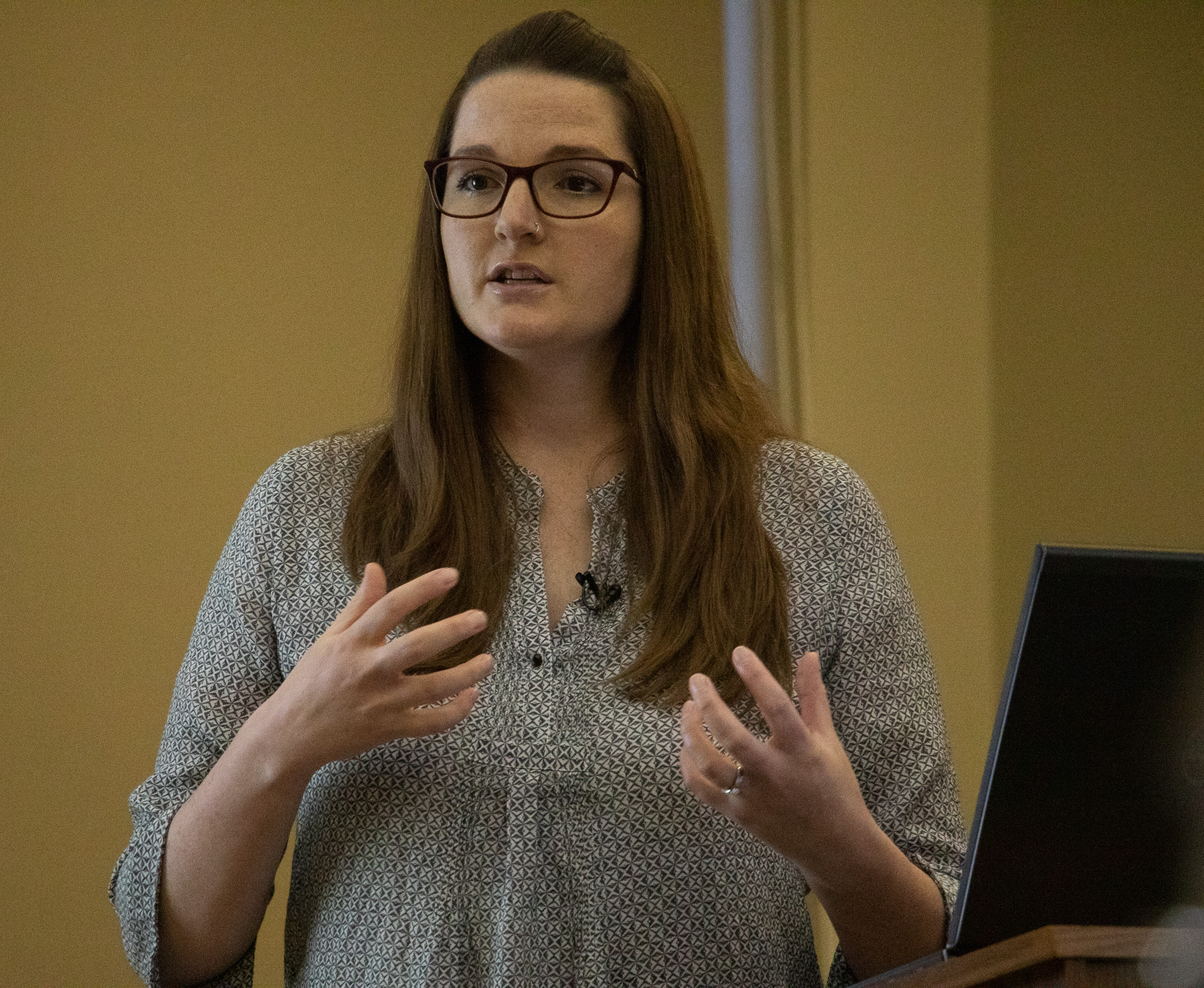Kraatz shares insights into child behavior as communication

CHADRON – Dr. Elizabeth Kraatz, assistant professor in the Counseling, Psychological Sciences, Social Work department, was the second Graves Lecture Series speaker of the Spring semester March 28. Her topic was Child Behavior as Communication.
Kraatz, a former middle school science teacher, who also taught adult education before joining the faculty at Chadron State College, said when she observed some of the struggles students faced, she decided to pursue a doctorate in educational psychology. As a foster and adoptive parent, she started studying trauma.
She said research indicates about 60 percent of all second graders have had at least one instance of major trauma.
“Trauma can be a wide variety of things that affect everything about brain development, including social and emotional skills,” Kraatz said.
She pointed out that often young children do not have the words and skills to verbalize what they're feeling so an attempt at communicating can be expressed in a variety of behaviors.
“The antecedent comes before a behavior and triggers it. If we can understand what antecedent is causing a behavior, a lot of times we can set the child up for success and prevent bad behaviors before they happen,” she said.
Kraatz discussed several types of coping strategies.
“Small children are prone to be overwhelmed because they can't tune out certain noises or the fact their shoes are pinching their toes. Their brain is constantly trying to process all of this information and that can lead to a feeling of being overwhelmed. We can help calm the environment by maybe taking them into a hallway. That's emotion regulation,” she said.
She said for college students doing homework and getting really frustrated, a problem-focused solution would be to go to the professor or the tutoring center for help.
She explained cognitive change, an approach to dealing with a negative circumstance.
“One way is reappraising how you think about a situation. Maybe find a silver lining or try to look at something from someone else's perspective. We know a lot of well-being and other benefits come from this particularly important skill,” Kraatz said.
Another cue children use when they are learning to regulate their emotions is watching and emulating adults, a process called co-regulation.
“Little kids are not physically capable of fully self-regulating. Co-regulation is when the adult takes some of the responsibility for regulating the child’s emotion. An escalated adult cannot de-escalate an escalated child. We need to calm them down, we need to remain calm, and then we can revisit the whole issue,” Kraatz said.
She advised parents and caretakers to choose their battles, offer only productive criticisms, and allow children to make choices and fail in developmentally appropriate ways.
“Of course, we're not going to let our three-year-old run into the road, but as they get older, they need bigger chances to make their own choices and deal with the consequences. Coping with failure develops neurological pathways that will enable them to build coping skills for future failures that we all have,” she said.
Kraatz said even poor behaviors could be ignored if they are unlikely to reoccur.
“For example, your kid is so excited it is Christmas that they chuck something across the room. They're probably not going to break rules about chucking things across the room tomorrow when it’s not Christmas,” she said. “We can do things like cueing, giving verbal corrections, or using proximity. This is great as a teacher. I just walk over and stand next to the child causing the disruption and they usually quit.”
Category: Campus News
